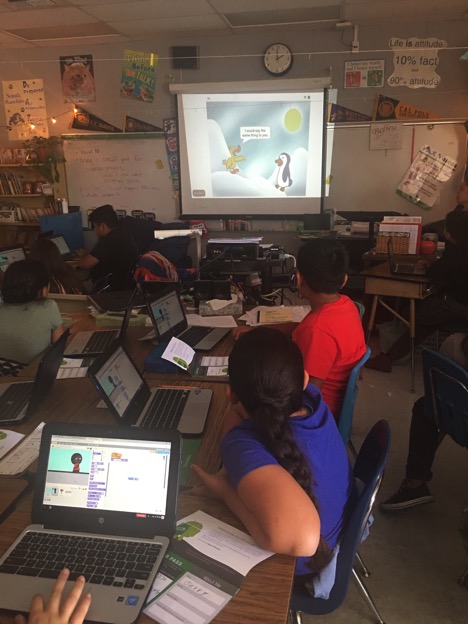In the last decade, there have been many shifts to classroom instruction that has revolutionized traditional educational settings. While I still remember my vivid 5th grade classroom presentations on the fifty states and our whole class reading along to The Giver in 6th grade, I do not remember being too engaged with many of the math lessons. Truth is, I was never good at learning from books and solving problems whole class was a drag. Thus, my interest in math slowly decreased over time. At least until until 8th grade, when I was challenged with geometry, and my teacher gave us each an opportunity to focus on content at our own pace with option menus of activities and lessons. While I loved geometry for reasons I did not understand back then, it was in graduate school, when I was training to be a teacher that I was able to connect the dots between my 8th grade experience in geometry class and a new method to teaching: personalized learning.
In essence, the buzz around personalized learning stems from the concept itself: the method is meant to tailor and differentiate lessons to students of different ability levels, allowing for learning to feel more personalized, which in turn helps with student engagement. While educators are taught from day one that in order to reach all students, they must differentiate instruction (basically asks teachers to know their students well enough that they can teach them at their individual levels), with the adoption of the Common Core standards, the added focus on technology integration and an emphasis on college and career readiness, personalized learning allows for students to be challenged in a different way.
In many schools, increased access to technology has allowed for teachers to use online education programs to help supplement instruction. These technology-based programs come with the added bonus of live updates, which allow for the content to be tailored to students’ needs as they complete each assignment/activity. However, personalized learning goes beyond the integration of technology, instead, true personalized learning mixes technology-based approaches with other activities that allow students to attain a more well-rounded education. With that comes activity menus that allow for students to have choice, project-based learning, which challenge students to think beyond a simple solution, and so much more. Personalized learning at its core provides students an opportunity to learn at their own pace but if implemented correctly and with a framework that allows for it to be sustainable, personalized learning also helps develop student agency.
In our ever-growing competitive world, it is critical that we develop students academically while also nurturing their character and agency. Personalized learning takes care of that — providing students an opportunity to be challenged with curriculum that is rigorous yet accessible, while developing their communication and collaborative skills.
Don’t you wish you could remember your own schooling experience for reasons other than how much you hated to learn from a book and rather from how engaged you were with the different pathways to learning? Allow our students to have those opportunities.
Alma Renteria
Latest posts by Alma Renteria (see all)
- Rincón Universitario: Cómo Escribir una Narrativa Auténtica para Solicitudes de Universidades, Parte 3 - October 17, 2019
- College Corner: How To Write An Authentic Narrative for College Applications, Part 3 - October 15, 2019
- Rincón Universitario: Cómo Escribir Una Narrativa Auténtica para Solicitudes Universitarias, Parte 2 - October 1, 2019
- College Corner: How To Write An Authentic Narrative for College Applications, Part 2 - September 26, 2019
- College Corner: Cómo Escribir un Relato Auténtico de Solicitudes para la Universidad, Parte 1 - September 4, 2019

